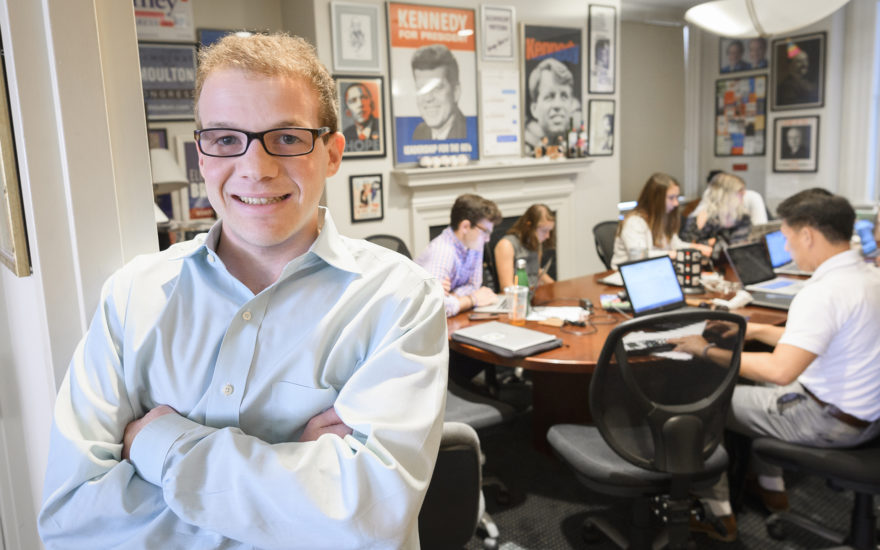PSCI 092
PLSWomen and War
Women have assumed both active and passive roles in violent conflict since the beginning of time. Here you’ll examine the impact of war on women and develop a broader understanding of women’s role in society.

Request Information
Power and the people
Understanding the policies and decisions that shape your life on the local, national, and international level requires keen insight and expert analysis. The bachelor of arts degree in political science from Clark University helps you explore this dynamic subject across three crucial areas — American politics and public policy, comparative politics, and international relations — in the context of a foundational liberal arts education.
As a political science major, you’ll investigate a range of issues that reverberate within and beyond Clark’s campus, including civil liberties, human rights, elections, and globalization. In line with our focus on action-based learning, you’ll collaborate with faculty members and peers to drive positive change through your research, internships, and service projects, at home and abroad.
Political Science
A minimum of 13 courses are required to complete the political science major. Foundational classes in research methods and political theory will show you how to articulate, evaluate, defend, and rebut answers to the questions that political scientists ask. You’ll choose a subfield of political science (American politics and public policy, comparative politics, or international relations), taking courses from the introductory level to an advanced capstone seminar. Classes outside your subfield, as well as Economics and the World Economy and a course in history, will broaden your knowledge base. You’ll have flexibility in your course selection.
Qualified students can join the Clark chapter of Pi Sigma Alpha, the national political science honor society.
Building your foundation
The Clark Core allows students to take courses across diverse disciplines, helping them develop critical thinking skills and respect for other cultures and perspectives. You’ll connect classroom learning with action through world and workplace experiences.
Notifications